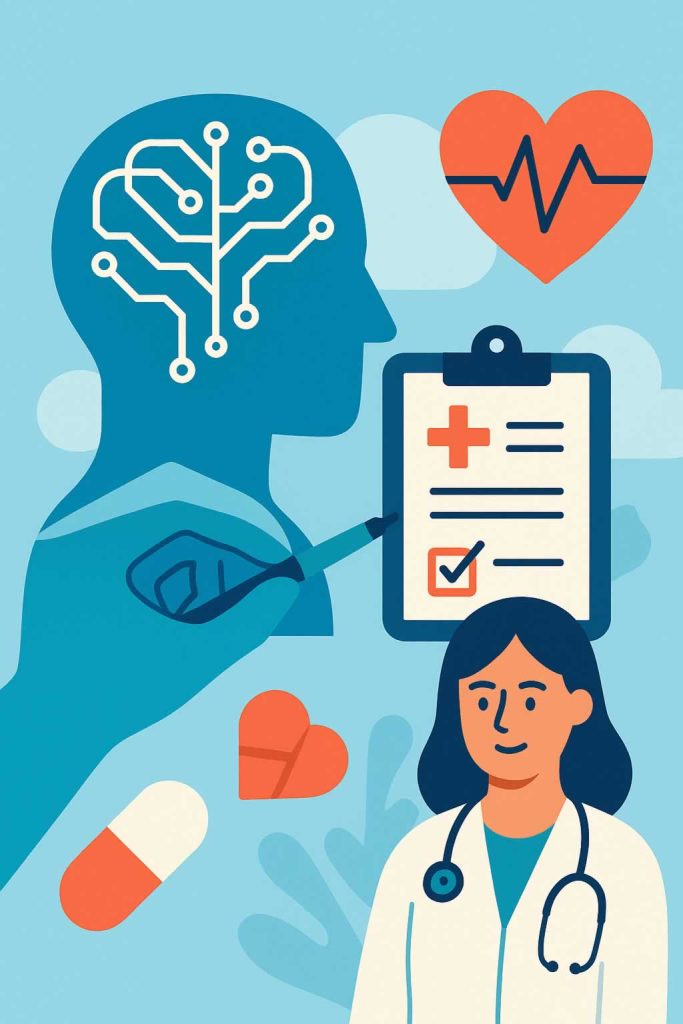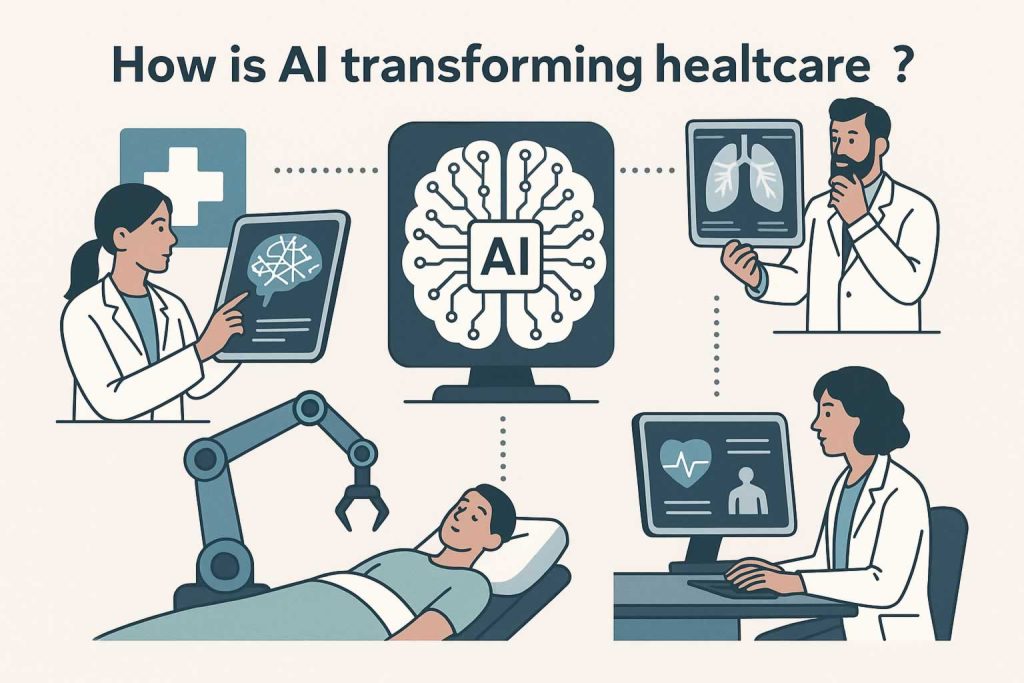

AI is reshaping healthcare by helping professionals make faster, more accurate decisions and by improving how care is delivered across the system. From diagnostics to patient engagement and hospital operations, AI is making the healthcare process more data driven and efficient. At AEHEA, we see this as one of the most promising areas for responsible AI implementation. The potential to improve outcomes, reduce costs, and enhance patient experiences is enormous when the technology is applied thoughtfully.
One of the most impactful areas is medical imaging. AI models trained on vast datasets of X-rays, MRIs, and CT scans can now detect conditions like tumors, fractures, or infections with accuracy comparable to experienced specialists. These tools support radiologists by highlighting possible areas of concern, reducing missed diagnoses, and speeding up the review process. In busy healthcare environments, this kind of support means faster answers for patients and more confidence for clinicians.
AI is also playing a growing role in predicting patient risks and personalizing treatment. By analyzing data from electronic health records, lab results, and even wearable devices, AI systems can identify patterns that suggest emerging health issues. Hospitals use this insight to anticipate complications, adjust care plans, and intervene early. On the patient-facing side, chatbots and virtual health assistants are improving access to information, answering routine questions, and guiding users through self-care instructions or medication schedules.
At AEHEA, we approach healthcare AI with a focus on safety, transparency, and collaboration. We design systems that enhance the work of doctors, not replace it. The human element remains central. AI provides tools that support better decision making, automate repetitive tasks, and unlock new forms of insight, but we always prioritize trust and explainability. When implemented responsibly, AI becomes an ally in healthcare one that scales expertise, widens access, and helps create a more resilient system.
